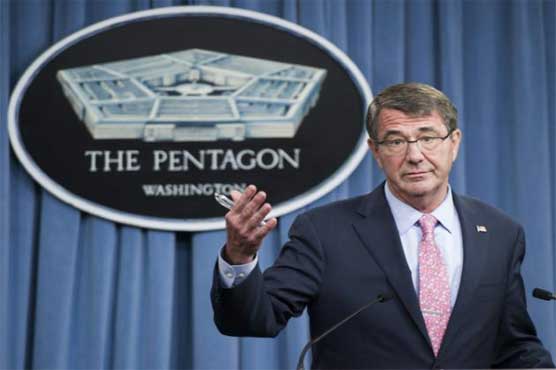US, Russia hold military talks to avoid mishaps in Syria

The Pentagon held talks with officials in Moscow via video in a bid to avoid mishaps in Syria.
WASHINGTON (AFP) - The Pentagon held talks with officials in Moscow on Thursday, the second day of Russian bombing in Syria, in a bid to avoid mishaps in the region between the two military powers.
It was unclear however how fruitful the talks were.
US military officials were furious Wednesday after Russia gave them only an hour s vague "heads-up" that warplanes would begin bombing. The warning didn t specify when or where the strikes would occur, only that coalition planes should avoid the area.
With a US-led coalition carrying out near-daily air strikes in Syria, the Pentagon worries that Russian planes crossing paths with coalition aircraft could spark a major international incident.
Pentagon press secretary Peter Cook said Defense Department officials spoke with their Russian counterparts for about an hour via video in what he said was a "cordial and professional" exchange.
He said topics included which frequencies could be used if a pilot was in distress, and what language aircrews should communicate with each other in.
"We made crystal clear that at a minimum the priority here should be the safe operation of the aircrews over Syria," Cook said.
US officials stress that Russia needs to tell them about their military flight plans over Syria. In military jargon, such talks to avoid interference is known as "deconfliction."
Russia on Wednesday launched its first air strikes in Syria, marking its explosive arrival in the 4.5-year-old conflict that has claimed some 250,000 lives.
Strikes continued Thursday, with Russian warplanes hitting opponents of Syrian President Bashar al-Assad. Russia claims it is only targeting Islamic State jihadists but several reports -- including one from Republican Senator John McCain -- said that Moscow has targeted CIA-trained Syrian rebels.
"There s limited air space over Syria, there s a lot of (IS jihadists) over there that we need to get after," a senior US defense official said, speaking on condition of anonymity.
"Deconfliction is important because it brings down risks associated with inadvertent encounters, it brings down risks of being in the same air space at the same time," the official said.
In Washington, the inter-military talks drew scorn from critics of President Barack Obama, who they say has mishandled the Syria crisis and let Russia step into a vacuum of international leadership.
"It appears deconfliction is merely an Orwellian euphemism for this administration s acceptance of Russia s expanded role in Syria, and as a consequence, for Assad s continued brutalization of the Syrian people," said McCain, a longtime critic of US efforts to fight Islamic State jihadists.
"It is simply incomprehensible that the administration is taking such great pains to offer Russia a constructive role in Syria," he said.
The Russians have at least 32 warplanes deployed in Syria, US officials say, including bombers, ground-attack craft and fighters. They are based at an airfield that Russia has reinforced in Syria s Latakia region in the northwest.
Russia has stationed about 500 marine infantry troops at the base, likely to protect the facility. Including pilots, air crews and support workers, about 2,000 personnel are at the base, US officials say.
The US-led coalition however has not scaled back its attacks on IS jihadists in Syria.
Colonel Steve Warren, a military spokesman, said Thursday that coalition planes and drones had flown several sorties over the past 24 hours in Syria.
One of these drone missions resulted in two "enemy excavators" being blown up. Warren said the other planes did not drop bombs because of a lack of clear targets.
"We have not altered operations in Syria to accommodate new players on the battlefield," Warren stressed.
Coalition pilots have clear instructions on how to operate when in the same air space as Russian pilots, and Warren said he expects "the Russians or any other pilot" to follow the same procedures.


